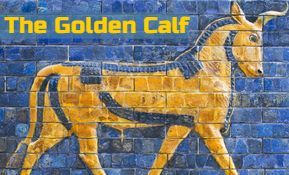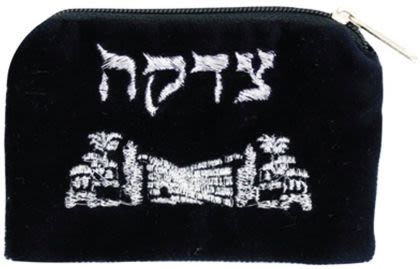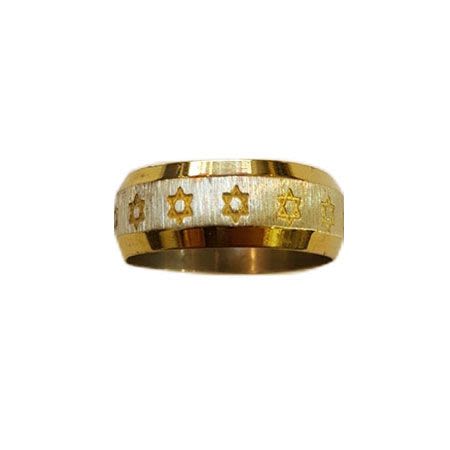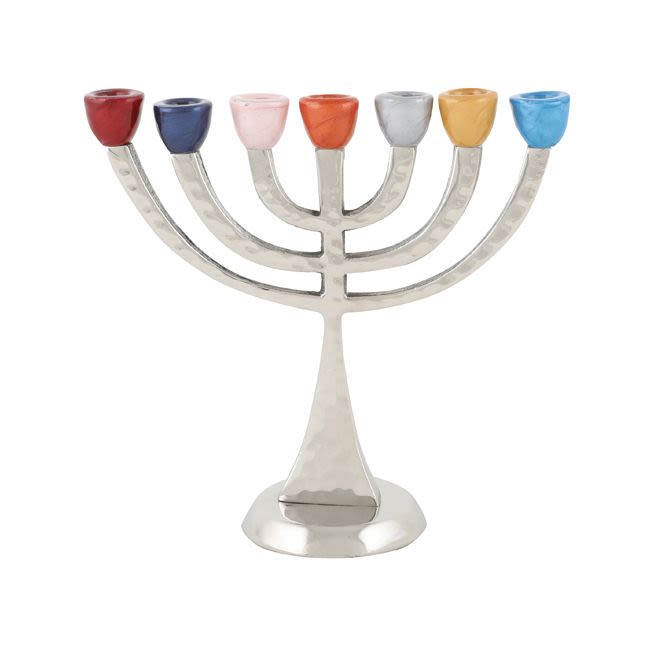
Pinchas: The Zealot and Peace
It is understandable that such a philosophy would have a great attraction for the Children of Israel. The ‘hippy movement,'...

Anything Goes!
“Pinchas, son of Elazar, son of Aharon (Aaron) the Cohen, turned back My wrath from upon the Children of Israel, when he zealously avenged Me among them. So I did not consume the Children of Israel in My vengeance” (Bamidbar 25:11).
By zealously acting on behalf of God, Pinchas put an end to the plague that God brought upon the Jews as punishment for their rampant immorality. Had it not been for Pinchas’ zealous act, the plague would have continued.
What caused the plague?
After Bilaam failed to curse Israel (which was the subject of last week’s Torah portion), he devised a plan. Bilaam knew that God does not tolerate immorality, so he counseled Balak to entice Jewish men to depravity.
The Moabite women invited the Jews to feast and drink with them, and when the men became aroused and wanted to cohabit, the women drew out their Baal Peor idols from their robes and insisted that the Jewish men bow to them (Rashi).
“Israel became attached to Baal Peor” (Bamidbar 25:3).
The idol worship of Baal Peor was particularly repugnant. Its manner of worship was to ingest laxatives and defecate in front of the idol. The Talmud tells a story about a gentile woman who made an oath that if she recovered from her illness, she would worship every idol in existence. She recovered and set out to fulfill her oath. However, when she encountered the priests of Baal Peor she said she would prefer her illness to worshipping in such a disgusting manner! (Sanhedrin 106a).
How could the Children of Israel, who had spent forty years in the desert, in close proximity with God, be attracted to such a despicable practice?
Rabbi Chaim Shmuelevitz answers this question by quoting a story from the Talmud. A Jew named Shabbetai of Alas once walked by a house of ‘worship’ of the Baal Peor. In an apparent attempt to disparage the idol, he entered, defecated in front of the idol, picked it up, and wiped himself with its nose. However, to his surprise, the priests were generous in their approbation and effusive in their praise. “No one in history has ever worshipped Baal Peor in such a way!” they exclaimed (Sanhedrin 64a).
The entire concept of worshipping the Baal Peor was to shame and mock the idol. The worshipers’ philosophy was to break down all the rules of morality: “Anything goes!” Normally, even idol worshipers are bound within the restraints of their religion, and they have to honor and serve their idol. But the Baal Peor worshippers accepted no restrictions; even their idol was ruthlessly shamed. They considered no value worthy of consideration and they created an idol solely for the sake of shaming and mocking it.
It is understandable that such a philosophy would have a great attraction for the Children of Israel. The "hippy movement," as exemplified by the Woodstock festival, tried to "let it all hang loose” and abandon the restraints of the establishment’s morality. It is extremely attractive for a human being to fanaticize that he is completely liberated and that everything he desires is permissible.
Breach in the Fence
With this concept we can understand the verses in Devarim (4:2-3): “You shall not add to the word that I command you, not shall you subtract from it, to observe the commandments of Hashem, your God, that I command you. Your eyes have seen what Hashem did with Baal Peor, for every man that followed Baal Peor – Hashem, your God, destroyed him from your midst.”
Moshe commands the people not to add or subtract from the Divine commandments. But how is that connected to the tragic events of the Baal Peor idol worship?
A person maintains his spiritual integrity by keeping himself bounded in the "fence" of morality and religious practice. The moment a person breaches that fence, his spiritual well being is endangered. This is the yetzer hara’s technique: at first he tries to tempt us to “cheat” a little by breaching a tiny hole in the fence, but in the end he entices us to the most severe transgressions.
The Torah created a fence of 613 Mitzvot, commandments. When someone subtracts from the mitzvot, besides the loss of that particular mitzvah, he also punctures a hole in the Torah’s fence. Adding to the mitzvot also ruptures the Torah’s fence. The Sages said: “Anyone who adds to the commandments is decreasing [their authority]” (Sanhedrin 29a).
A fence with a hole in it is no longer a fence, and it can no longer protect the person from transgression. By way of analogy: A person builds a fence around his vineyard to protect it from pests. If the fence is broken, the entire vineyard is exposed to damage, not just the area opposite the break in the fence. In the same way, a person is in spiritual danger the moment he breaks an opening anywhere in the fence.
This is the Torah’s intention: “You shall not add to the word that I command you, not shall you subtract from it… Your eyes have seen what Hashem did with Baal Peor” (Devarim 4:2-3). Adding or subtracting from the mitzvot is the first break in the fence, which leads to a total breakdown of all moral restraints — the essence of Baal Peor (Sichot Mussar, 5732, 35).
The Sign of Peace
“Pinchas, son of Elazar, son of Aharon the Cohen, turned back My wrath from upon the Children of Israel, when he zealously avenged Me among them. So I did not consume the Children of Israel in My vengeance. Therefore, say: Behold! I give him my covenant of peace” (Bamidbar 25:11).
At the conclusion of last week’s Torah portion, we read about the act of Zimri and the response of Pinchas. The episode is described as follows:
“And a man [Zimri] from the Children of Israel brought a Midianite woman in front of his brethren, in sight of Moshe (Moses) and the entire community, and they were weeping in front of the Tent of Meeting. Pinchas, the son of Elazar, son of Aharon the Kohen, saw them. He arose from the community and took his spear with him. He approached the man of Israel by the tent and he pierced them both by the tent… And the plague in Israel was halted” (Bamidbar 25:6-8).
Pinchas’ zealous deed put an end to the nation’s attachment to immorality, mending the hole in the fence. He restored shalom — wholeness and completeness, which is peace — to the Children of Israel.
Some people denigrate zealousness, because they feel it leads to arguments. The Brisker Rav, Rabbi Yitzchak Zeev Soloveitchik, explains the fallacy of this viewpoint in the name of his father, Rabbi Chaim Soloveitchik, known as Reb Chaim Brisker.
When a person is awarded a prize from his country, the award always matches the essence of his contribution. For heroism in battle, a man is given the “Medal of Courage.” For scientific contributions, he receives the Nobel Prize for Physics or the like.
According to this, Pinchas should have been awarded the “Zealot of the Year” award. However, the Torah awarded him instead with the Peace Prize: “Behold! I give him my covenant of peace” (Ibid. 11). Why?
As a result of Pinchas’ zealousness, God turned back His wrath from upon the Children of Israel. Therefore, in essence, his zealousness was an act of making peace.
Even a zealous act that appears to the untrained eye as creating argument and strife, if it was done purely for the sake of Heaven, is actually creating true peace and harmony. Usually those that are appalled at the zealot’s actions align themselves with the cause of peace and unity. However, quite often the appeasement and compromise of the “path of peace” is an actual cause of destruction for the Jewish people.
Rabbi Reuven Grodzinsky adds in the name of Reb Chaim Brisker that there are two types of zealots in the battle against the wicked. We should strive to be like the housewife who chases the mice from her kitchen because she wants to be rid of them, and not like the cat that chases the mice for the pleasure and thrill of the chase.
The story of Pinchas teaches us the proper course of action that we should take when we see a breach in the code of morality. If one feels personally affronted, undoubtedly he is on the wrong track. However, if he feels zealous for God’s honor alone, and asks a halachic authority about the correctness of his actions, as Pinchas did when he asked Moshe (see Rashi on Bamidbar 25:7), he has the potential to restore sanctity to the Jewish camp and bring peace.










Tell us what you think!
Thank you for your comment!
It will be published after approval by the Editor.